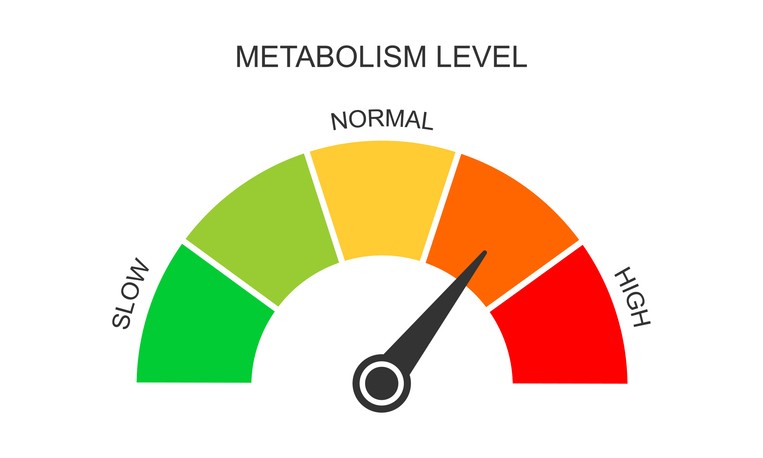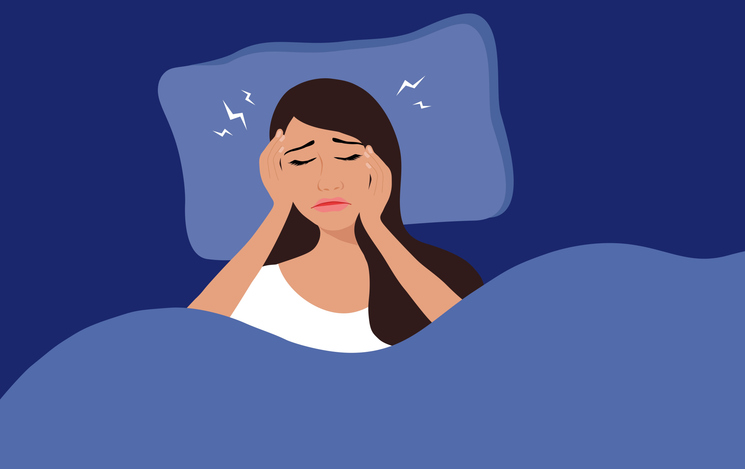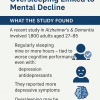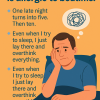Finding Your Sleep Sweet Spot
Ever wondered why some nights you sleep like a baby while on others you toss and turn? Your pre-bedtime snacking habits might hold the key. Let’s explore how your metabolism and evening food choices create a behind-the-scenes conversation with your sleep system.
The Nighttime Metabolism Mystery 🔄
Sleep isn’t simply an “off” switch for your body. During rest, your metabolism shifts gears but continues working—processing nutrients, regulating hormones, and supporting vital recovery processes.
Communication expert Vanessa Van Edwards—founder of Science of People—explains that our bodies constantly send and receive signals. When you eat before bed, you’re essentially sending a message to your internal systems about what they should prioritize during the night ahead.
The Language of Food and Sleep ⚗️
Research shows that different foods “speak” different dialects to your sleep system:
-
Some foods say “wake up”: High-sugar treats (like cookies or candy bars), spicy dishes (such as hot wings or chili), and caffeine-containing snacks (chocolate, certain teas, or coffee-based desserts) can activate your digestive system and raise alertness hormones.
-
Others whisper “rest now”: Foods containing sleep-friendly compounds like tryptophan, magnesium, or specific complex carbohydrates (e.g., bananas, nuts, whole grains) support your natural sleep chemistry.
Behavioral scientist Phil Yaffe notes that how we frame our choices dramatically impacts our experience. Similarly, how your body “frames” the food you consume before bed affects your sleep architecture.
When Evening Eating Disrupts Sleep 🚫
Certain eating patterns can significantly undermine sleep quality:
-
Timing matters: Eating within 2 hours of bedtime often increases core body temperature when it should be naturally dropping for optimal sleep.
-
Volume counts: Large portions require more digestive effort, potentially interrupting deep sleep phases.
-
Composition is key: Foods that cause sharp blood sugar fluctuations—like high-sugar, high-fat evening meals (think ice cream, deep-fried snacks, or greasy pizza)—can trigger stress hormones that fragment sleep cycles.
A 2016 study published in the Journal of Clinical Sleep Medicine found that participants consuming high-fat, high-sugar evening snacks experienced measurably reduced slow-wave sleep—the restorative stage critical for feeling refreshed in the morning.
The Power of Intentional Evening Nutrition 💤
Communication experts emphasize that how we present information shapes how it’s received. In the same way, how you introduce food before sleep significantly impacts its effect:
-
Mindful consumption: Being present and relaxed while eating your evening snack can enhance positive digestive processes.
-
Clear intention: Understanding exactly why you’re choosing specific foods creates a stronger mind-body connection.
-
Consistent timing: Regular eating schedules reinforce your body’s internal clock, making it easier to transition to sleep.
Finding Your Metabolic Timing 🕒
Your unique biological rhythm (including your chronotype) plays a crucial role in how evening eating affects your sleep:
-
Some people genuinely sleep better after a small, sleep-supporting evening snack
-
Others find any food after dinner disrupts their rest
-
Your personal sleep-wake cycle influences optimal eating windows
Leadership communication research shows that understanding your natural tendencies helps you make more effective choices. By recognizing your metabolic patterns, you can make evening eating decisions that support rather than sabotage your sleep.
The Experiment Effect: Becoming Your Own Sleep Scientist 🔍

Instead of following generic sleep nutrition rules, try this approach recommended by behavioral scientists:
-
Test different approaches: Experiment with various evening eating patterns (including timing, composition, and portion size). For instance, try skipping a late-night snack for a few nights, then introduce a small, protein-rich snack on other nights.
-
Track your results: Note how each pattern affects your sleep quality, how often you wake up, and your morning energy level.
-
Discover your personal pattern: Identify what genuinely works for your unique body, keeping in mind that there is no one-size-fits-all solution.
This evidence-based self-discovery process empowers you to make confident decisions about your evening nutrition rather than relying on blanket advice.
Creating Your Pre-Sleep Nutrition Blueprint 📝
For most people, these evidence-based practices support better sleep:
-
Transition mindfully: If you’re hungry before bed, opt for small portions (under 200 calories) of sleep-supporting foods.
-
Select sleep-friendly options:
-
Banana with a small spread of almond butter
-
Turkey and avocado on half a whole grain wrap
-
Warm milk with cinnamon and a touch of honey
-
Tart cherry juice and a few walnuts
-
-
Create consistency: Establish regular eating patterns that your body can anticipate and prepare for.
By choosing nutritious, balanced snacks over typical evening junk foods (like heavy fries, sugary desserts, or greasy takeout), you can reduce late-night digestive distress and ease your body into rest mode.
The Connection Between Evening Rituals and Sleep Quality 🌙
Your pre-sleep routine creates a powerful context for how your body processes evening nutrition. Communication research highlights that consistent signals lead to stronger responses. Similarly, consistent evening routines—perhaps including a carefully chosen small snack—help your body recognize and prepare for sleep.
By approaching your evening eating with intention rather than habit, you transform what could be a sleep disruptor into a sleep enhancer.
Your Personal Sleep Nutrition Journey ✨
There’s no single perfect answer to the bedtime snack question. The key is discovering what works for your unique metabolism and sleep needs.
By paying attention to how different evening eating patterns affect your sleep quality, you’ll gain valuable insight into your body’s preferences. These small adjustments can lead to significant improvements in both sleep quality and daytime energy.
Remember, quality sleep isn’t just about feeling good in the morning—it’s about optimizing your health, mood, and cognitive function for the long run.
Sweet dreams and restful nights! 🌛







